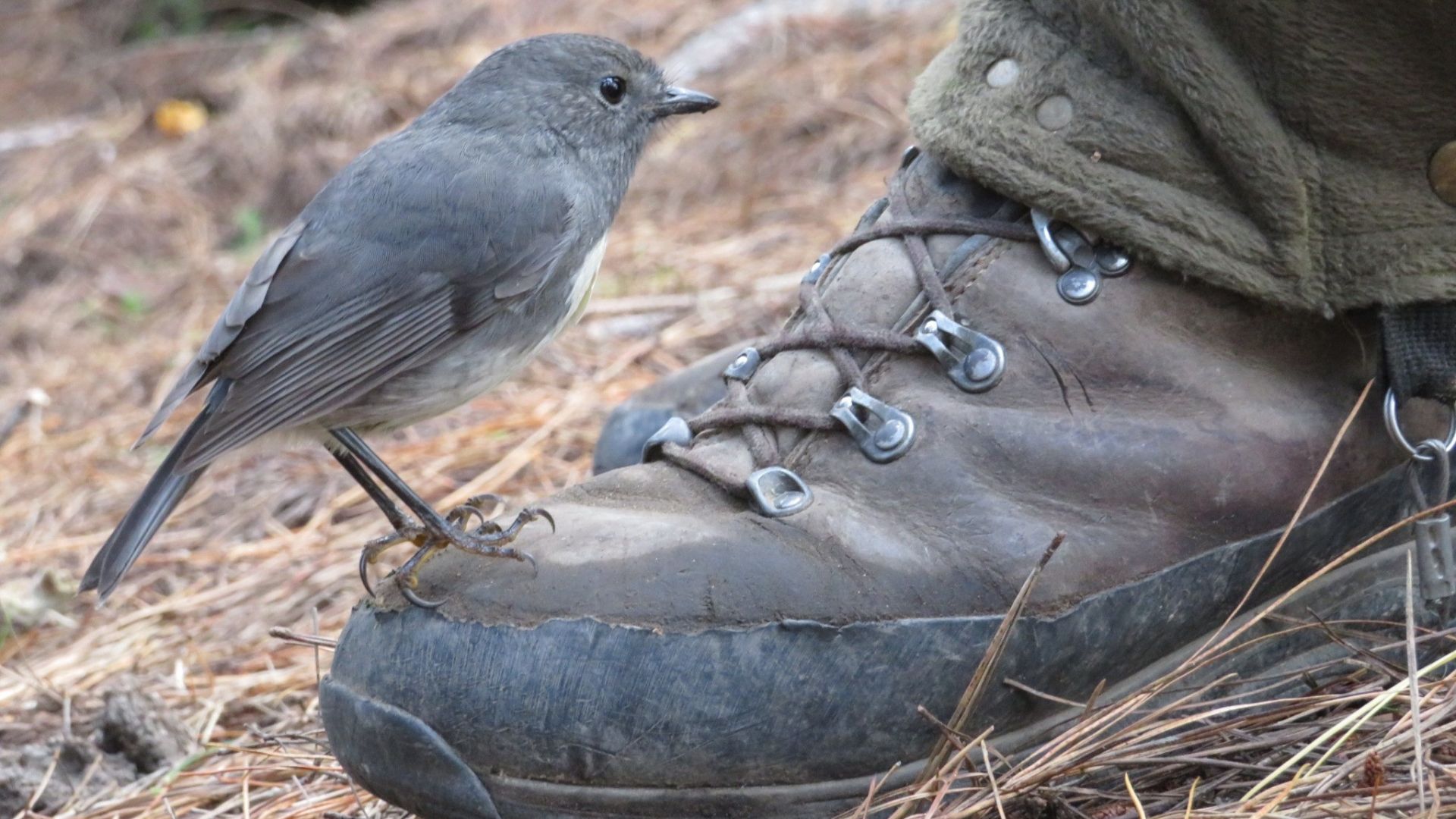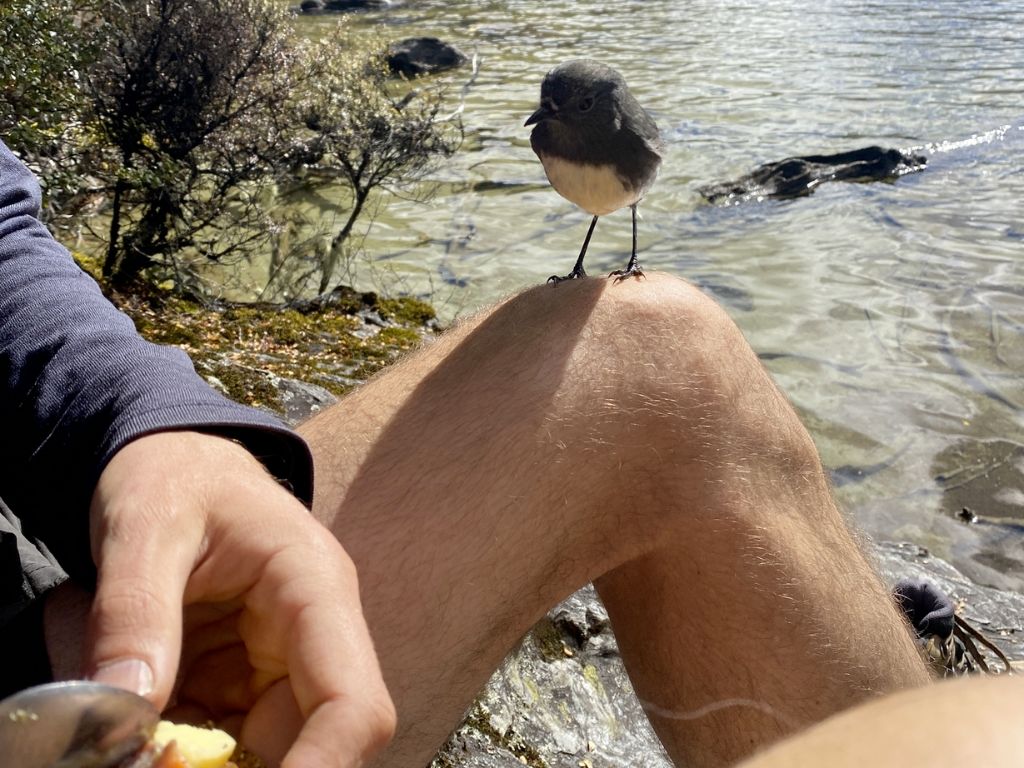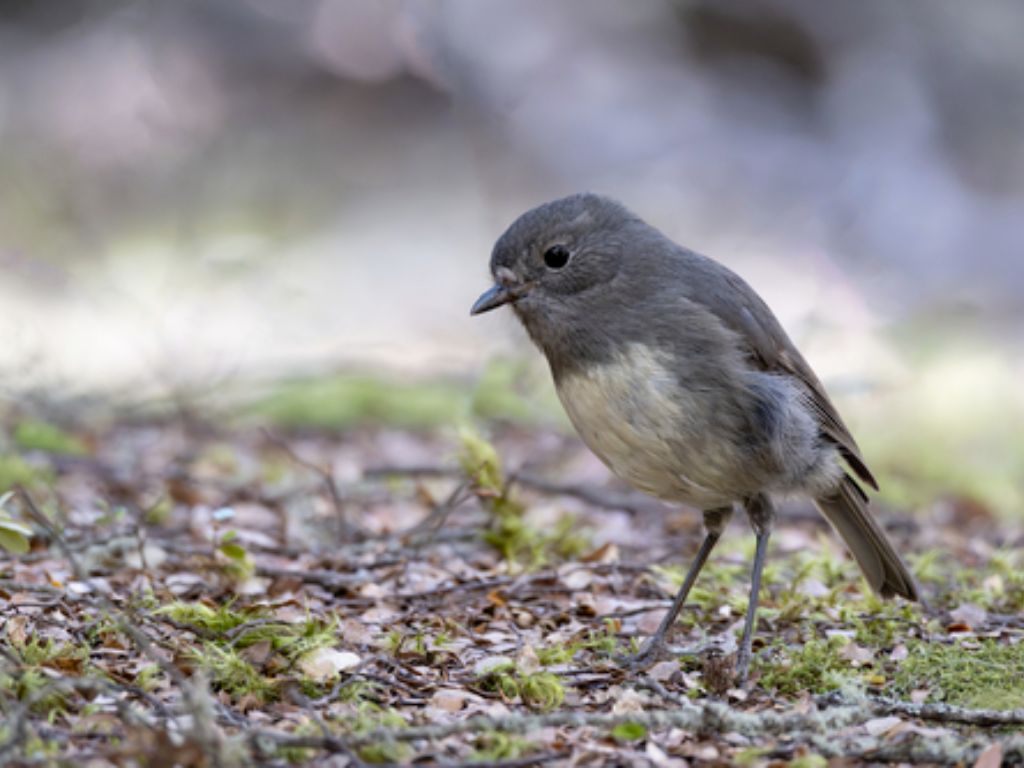Robins are one of our most charming daredevils, known for coming close to humans in the bush and even hopping onto boots while foraging for insects. But recently published research suggests our friendly and curious kakaruwai (South Island robin) might be losing their bold personalities in the presence of introduced predators.

The boldness test
Picture this: two kakaruwai populations. One living their best, boldest lives on predator free Motuara Island in the Marlborough Sounds; the other surviving in mainland bush full of nearly every introduced mammal predator.
Researchers investigated the differences between shyness and boldness, defined as an individual’s reaction to a risky but not novel situation.
To test their avian audacity, the researchers timed an individual bird’s willingness to approach to collect a mealworm larvae snack. The Motuara robins strutted right up to the treat while their mainland Kaikoura counterparts took a more cautious approach.

The survival advantage
The constant exposure to a predator-rich environment is seemingly prompting friendly robins to dial back their boldness in favour of caution. This is good for their survival, the researchers say.

“Shyer responses may be more advantageous as they may make them better at avoiding mortality through predation from a wide range of introduced mammalian predators that are present.”
The continued bold behaviour is also advantageous on Motuara Island, as robin densities are around ten times greater and bolder responses allow individuals to be more “successful competitors in gaining territories, mates and food.”
So, are we witnessing the evolution of a more cautious generation of mainland robins? The study doesn’t definitively say whether these differing robin personalities are coded in their genes or influenced by learning.
“However, if environmental conditions show directional change, selection can favour one personality tendency, causing it to become more prevalent over time,” the study states.
The implications of these behavioural differences could play an important role in programmes to translocate and manage bird populations. Birds from island populations are sometimes used to reintroduce or supplement populations on the mainland.
If too many bold individuals are removed from a population to create a new population, they may not thrive due to a greater lack of caution around predators.
Removing predators through predator control and eventually eradication would help robins live their best, bold lives again on mainland Aotearoa New Zealand.
You can access the full study online, written by Robyn White, Laureline Rossingnaud and James Briskie and published in the New Zealand Journal of Zoology.


